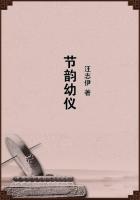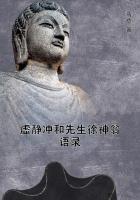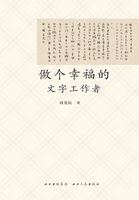Right here we have one more difference between the Law and the Gospel. The Law does not bring on the Holy Ghost. The Gospel, however, brings on the gift of the Holy Ghost, because it is the nature of the Gospel to convey good gifts. The Law and the Gospel are contrary ideas. They have contrary functions and purposes. To endow the Law with any capacity to produce righteousness is to plagiarize the Gospel. The Gospel brings donations. It pleads for open hands to take what is being offered. The Law has nothing to give. It demands, and its demands are impossible.
Our opponents come back at us with Cornelius. Cornelius, they point out, was "a devout man, and one that feared God with all his house, which gave much alms to the people and prayed God always." Because of these qualifications, he merited the forgiveness of sins, and the gift of the Holy Ghost. So reason our opponents.
I answer: Cornelius was a Gentile. You cannot deny it. As a Gentile he was uncircumcised. As a Gentile he did not observe the Law. He never gave the Law any thought. For all that, he was justified and received the Holy Ghost. How can the Law avail anything unto righteousness?
Our opponents are not satisfied. They reply: "Granted that Cornelius was a Gentile and did not receive the Holy Ghost by the Law, yet the text plainly states that he was a devout man who feared God, gave alms, and prayed. Don't you think he deserved the gift of the Holy Ghost?"
I answer: Cornelius had the faith of the fathers who were saved by faith in the Christ to come. If Cornelius had died before Christ, he would have been saved because he believed in the Christ to come. But because the Messiah had already come, Cornelius had to be apprized of the fact. Since Christ has come we cannot be saved by faith in the Christ to come, but we must believe that he has come. The object of Peter's visit was to acquaint Cornelius with the fact that Christ was no longer to be looked for, because He is here.
As to the contention of our opponents that Cornelius deserved grace and the gift of the Holy Ghost, because he was devout and just, we say that these attributes are the characteristics of a spiritual person who already has faith in Christ, and not the characteristics of a Gentile or of natural man.
Luke first praises Cornelius for being a devout and God-fearing man, and then Luke mentions the good works, the alms and prayers of Cornelius. Our opponents ignore the sequence of Luke's words. They pounce on this one sentence, "which gave much alms to the people," because it serves their assertion that merit precedes grace. The fact is that Cornelius gave alms and prayed to God because he had faith. And because of his faith in the Christ to come, Peter was delegated to preach unto Cornelius faith in the Christ who had already come. This argument is convincing enough. Cornelius was justified without the Law, therefore the Law cannot justify.
Take the case of Naaman, the Syrian, who was a Gentile and did not belong to the race of Moses. Yet his flesh was cleansed, the God of Israel was revealed unto him, and he received the Holy Ghost. Naaman confessed his faith:
"Behold, now I know that there is no God in all the earth, but in Israel."
(II Kings 5:15.) Naaman does not do a thing. He does not busy himself with the Law. He was never circumcised. That does not mean that his faith was inactive. He said to the Prophet Elisha: "Thy servant will henceforth offer neither burnt offering nor sacrifice unto other gods, but unto the Lord. In this thing the Lord pardon thy servant, that when my master goeth into the house of Rimmon to worship there, and he leaneth on my hand, and I bow myself in the house of Rimmon: when I bow down myself in the house of Rimmon, the Lord pardon thy servant in this thing." What did the Prophet tell him?" Go in peace." The Jews do not like to hear the prophet say this. "What," they exclaim, "should this heathen be justified without the Law? Should he be made equal to us who are circumcised?"
Long before the time of Moses, God justified men without the Law. He justified many kings of Egypt and Babylonia. He justified Job. Nineveh, that great city, was justified and received the promise of God that He would not destroy the city. Why was Nineveh spared? Not because it fulfilled the Law, but because Nineveh believed the word of God. The Prophet Jonah writes: "So the people of Nineveh believed God, and proclaimed a fast, and put on sackcloth." They repented. Nowhere in the Book of Jonah do you read that the Ninevites received the Law of Moses, or that they were circumcised, or that they offered sacrifices.
All this happened long before Christ was born. If the Gentiles were justified without the Law and quietly received the Holy Spirit at a time when the Law was in full force, why should the Law count unto righteousness now, now that Christ has fulfilled the Law?
And yet many devote much time and labor to the Law, to the decrees of the fathers, and to the traditions of the Pope. Many of these specialists have incapacitated themselves for any kind of work, good or bad, by their rigorous attention to rules and laws. All the same, they could not obtain a quiet conscience and peace in Christ. But the moment the Gospel of Christ touches them, certainty comes to them, and joy, and a right judgment.
I have good reason for enlarging upon this point. The heart of man finds it difficult to believe that so great a treasure as the Holy Ghost is gotten by the mere hearing of faith. The hearer likes to reason like this: Forgiveness of sins, deliverance from death, the gift of the Holy Ghost, everlasting life are grand things. If you want to obtain these priceless benefits, you must engage in correspondingly great efforts. And the devil says, "Amen."
We must learn that forgiveness of sins, Christ, and the Holy Ghost, are freely granted unto us at the preaching of faith, in spite of our sinfulness.















